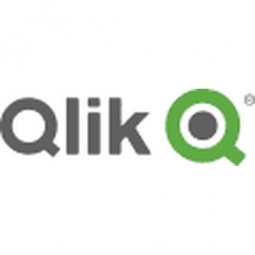下载PDF
Merck Sharp & Dohme consolidates according to business rules using QlikView
技术
- 分析与建模 - 实时分析
适用行业
- 药品
适用功能
- 销售与市场营销
用例
- 实时定位系统 (RTLS)
服务
- 数据科学服务
挑战
Merck Sharp & Dohme B.V. (MSD), the Dutch subsidiary of the US corporation Merck & Co., was using JD Edwards World, a worldwide financial system with limited scope for analysis and reporting. The parent company uses the data from this system to make consolidations and draw up the annual financial statements. It applies a complex set of rules which determine what costs are allocated to what items in the balance sheet and the profit and loss account. MSD Netherlands has to account for any differences in balance sheet items by conducting a detailed analysis. The challenge was to find a solution that would allow them to analyze the data from their financial system quickly and easily, and also take account of their specific set of rules.
关于客户
Merck Sharp & Dohme B.V. (MSD) is the Dutch subsidiary of the US corporation Merck & Co., which ranks as one of the most important pharmaceutical enterprises in the world, with $ 22 billion in revenue and 60,000 employees. MSD employs around 1,000 people spread between the Human Health Europe (HHE) Division and the Merck Manufacturing Division (MMD). HHE concentrates on the marketing and sales of drugs in the Dutch market. MMD is responsible for the production of drugs for distribution in the EMEA region.
解决方案
Merck Sharp & Dohme deployed QlikView to more than 40 employees. With QlikView, Merck Sharp & Dohme has insight into all the relevant rules-based financial information, anytime. It can analyze product, inventory, pricing and sales data in no time - all focused on driving corporate profitability. With QlikView Server, MSD easily supports security and visibility while handling large data volumes. QlikView is very user-friendly. Even a non-professional learns to operate QlikView in no time. If you want to look at different screens or reports, then that’s no problem at all. You don’t have to be a computer whiz to find the information you need – or to ‘read’ the analyses, which are clear and understandable.
运营影响
相关案例.

Case Study
Case Study: Pfizer
Pfizer’s high-performance computing software and systems for worldwide research and development support large-scale data analysis, research projects, clinical analytics, and modeling. Pfizer’s computing services are used across the spectrum of research and development efforts, from the deep biological understanding of disease to the design of safe, efficacious therapeutic agents.

Case Study
Fusion Middleware Integration on Cloud for Pharma Major
Customer wanted a real-time, seamless, cloud based integration between the existing on premise and cloud based application using SOA technology on Oracle Fusion Middleware Platform, a Contingent Worker Solution to collect, track, manage and report information for on-boarding, maintenance and off-boarding of contingent workers using a streamlined and Integrated business process, and streamlining of integration to the back-end systems and multiple SaaS applications.

Case Study
Process Control System Support
In many automated production facilities, changes are made to SIMATIC PCS 7 projects on a daily basis, with individual processes often optimised by multiple workers due to shift changes. Documentation is key here, as this keeps workers informed about why a change was made. Furthermore, SIMATIC PCS 7 installations are generally used in locations where documentation is required for audits and certification. The ability to track changes between two software projects is not only an invaluable aid during shift changes, but also when searching for errors or optimising a PCS 7 installation. Every change made to the system is labour-intensive and time-consuming. Moreover, there is also the risk that errors may occur. If a change is saved in the project, then the old version is lost unless a backup copy was created in advance. If no backup was created, it will no longer be possible to return to the previous state if and when programming errors occur. Each backup denotes a version used by the SIMATIC PCS 7 system to operate an installation. To correctly interpret a version, information is required on WHO changed WHAT, WHERE, WHEN and WHY: - Who created the version/who is responsible for the version? - Who released the version? - What was changed in the version i.e. in which block or module of the SIMATIC PCS 7 installation were the changes made? - When was the version created? Is this the latest version or is there a more recent version? - Why were the changes made to the version? If they are part of a regular maintenance cycle, then is the aim to fix an error or to improve production processes? - Is this particular version also the version currently being used in production? The fact that SIMATIC PCS 7 projects use extremely large quantities of data complicates the situation even further, and it can take a long time to load and save information as a result. Without a sustainable strategy for operating a SIMATIC PCS 7 installation, searching for the right software version can become extremely time-consuming and the installation may run inefficiently as a result.

Case Study
Drug Maker Takes the Right Prescription
China Pharm decided to build a cloud-based platform to support the requirements of IT planning for the next five to ten years which includes a dynamic and scalable mail resource pool platform. The platform needed to have the following functions: all nodes support redundancy, ensuring service continuity and good user experience, simple and easy-to-use user interfaces for end users and administrators and good compatibility and supports smooth capacity expansion.

Case Study
ELI LILLY ADOPTS MICROMEDIA’S ALERT NOTIFICATION SYSTEM
Pharmaceutical production is subject to a strict set of enforced rules that must be adhered to and compliance to these standards is critically necessary. Due to the efforts of WIN 911’s strategic partner Micromedia, Lilly was able to adopt an alarm notification infrastructure that integrated smoothly with their existing workflows and emergency hardware and protocols. These raw energy sources enable the industrial process to function: electricity, WIN-911 Software | 4020 South Industrial Drive, Suite 120 | Austin, TX 78744 USA industrial steam, iced water, air mixtures of varying quality. Refrigeration towers, boilers and wastewater are monitored by ALERT. Eli Lilly identified 15000 potential variables, but limitations compelled them to chisel the variable list down to 300. This allowed all major alarms to be covered including pressure, discharge, quantity of waste water discharged,temperature, carbon dioxide content, oxygen & sulphur content, and the water’s pH.






